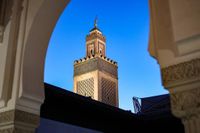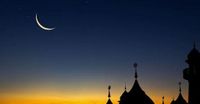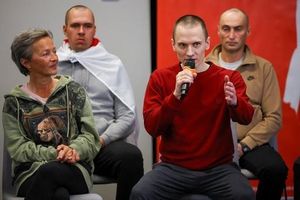The Gulf Cooperation Council (GCC) countries are anticipating lengthy holidays as they prepare for Eid Al Fitr 2025. Eid Al Fitr, marking the end of Ramadan, will be celebrated at different times across the region, generating excitement and some logistical consideration among its residents.
In the United Arab Emirates, the Ministry of Human Resources and Emiratisation (MoHRE) has announced that employees in the private sector will enjoy holidays from Sunday, March 30, 2025, to Tuesday, April 1, 2025. Should Ramadan last the full thirty days, the Eid holiday will extend to Wednesday, April 2, 2025. Public sector workers will observe holidays from 1 to 3 Shawwal 1446 AH, returning to work on 4 Shawwal, with the possibility of an additional day off if Ramadan concludes with a full month.
Meanwhile, in Oman, the Eid holidays are expected to commence on Sunday, March 30, and continue through Thursday, April 3, offering a total of five days off. This period may be extended to nine days given that the weekend follows, with additional holidays on Friday, April 4, and Saturday, April 5, 2025.
In Qatar, March 30 has been reported as the expected first day of Eid Al Fitr 1446 AH, in line with astronomical calculations from Qatar Calendar House. However, official confirmation of the holiday dates will depend on lunar observations.
Saudi Arabia will officially begin its Eid holidays on March 30, resuming regular work on Thursday, April 3. This comes in light of the preceding weekend on March 28 and 29, allowing for a longer respite for workers.
Across the region, similar Eids are being affirmed, each dependent upon local methods for determining the first sightings of the new moon, which ends Ramadan.
Nonetheless, it is pertinent to note the differences in lunar observation leading to varying Eid dates among Muslim nations. In Algeria, the Sirius Astronomy Association has confirmed that Eid will be on Monday, March 31, citing the lunar conjunction occurring on Saturday, March 29, at 11:57 AM local time; visibility that evening will be limited due to proximity between the conjunction and sunset.
A special consideration is the partial solar eclipse happening the same day, which will further hinder moon sighting opportunities for Algerians. The National Crescent Observation Commission in Algeria is set to meet on the evening of March 29 to evaluate lunar sightings and officially confirm the Eid date. A divergence may occur if Saudi Arabia, which may celebrate on March 30, prompts other countries to follow suit.
In contrast, the French Council of Muslim Faith (CFCM) has also set March 30 as Eid, relying on astronomical data. They announced the lunar conjunction will occur on March 29 at 11:58 AM Paris time. Acknowledging traditional observance, CFCM will hold a 'Night of Doubt' on March 29 to confirm the date based on moon sightings. They clarified that if the moon is sighted, Eid celebrations will take place on March 30; if not, the day would shift to March 31.
Amidst these discussions, the importance of Zakat al-Fitr, a mandatory charitable contribution at Eid, is emphasized across communities. The CFCM has established a contribution of 9 euros per individual, while the Grande Mosquée de Paris has set a rate of 7 euros. It is expected that family heads will facilitate this contribution on behalf of those under their care, solidifying communal ties during the festive season.
As families across the globe prepare for festivities, the cultural richness of these celebrations should not be overlooked; each region brings its own flavors and traditions to the table. Muslims will gather for prayers, share festive meals, give gifts, and engage in community activities, reinforcing bonds and celebrating the joy that Eid brings.
The upcoming Eid Al Fitr serves as a reminder of reflection, gratitude, and community spirit. With these varying observances and traditions, the region’s diverse cultural landscape enriches this joyous occasion, marking a beautiful end to the month-long observance of Ramadan and inviting all to celebrate a festival of unity and sharing.






